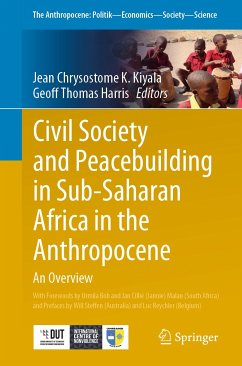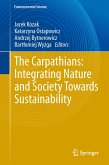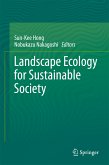of climate change and the pursuit of environmental peace and justice in the Anthropocene.
Five main research themes emerge from its 20 chapters:
· The roles of environmental peacemaking, environmental justice, ecological
education and eco-ethics in helping to mitigate the impacts of climate change
· Peacebuilding by CSOs after violent conflicts, with particular reference to
accountability, reconciliation and healing
· CSO involvement in democratic processes and political transition after violent
conflicts
· Relationships between local CSOs and their foreign funders and the interactions
between CSOs and the African Union's peace and security architecture.
· The particular role of faith-based CSOs
The book underlines the centrality of dialogue to African peacebuilding and the indigenous
wisdom and philosophies on which itis based. Such wisdom will be a key resource in
confronting the existential challenges of the Anthropocene.
The book will be a significant resource for researchers, academics and policymakers
concerned with the challenge of climate change, its interactions with armed conflict and the
peacebuilding role of CSOs.
· This pathbreaking book shows why peacebuilding analysis and efforts need to be
urgently re-oriented towards the existential challenges of environmental peace and
justice.
· It explains the emerging conceptual frameworks which are needed for this new role.
· It explains the critical role that CSOs - local and international - will play in
implementing this new peacebuilding approach, with particular reference to sub-
Saharan Africa.
Dieser Download kann aus rechtlichen Gründen nur mit Rechnungsadresse in A, B, BG, CY, CZ, D, DK, EW, E, FIN, F, GR, HR, H, IRL, I, LT, L, LR, M, NL, PL, P, R, S, SLO, SK ausgeliefert werden.









